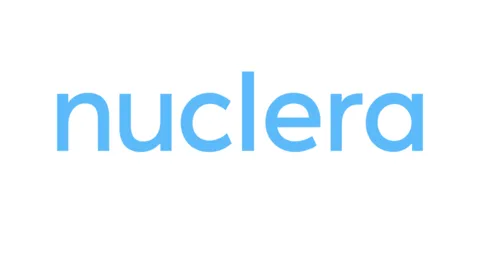
Nuclera Enhances eProtein Platform to Support Membrane Protein Production
Nuclera, a leading biotechnology innovator specializing in rapid protein expression and optimization, today announced a significant enhancement to its flagship benchtop platform, the eProtein Discovery™ system. The company has unveiled a new membrane protein workflow that empowers researchers to express, purify, and stabilize membrane proteins with unprecedented speed and efficiency. This technological advancement addresses one of the most persistent and technically challenging bottlenecks in drug discovery and development: the handling of membrane proteins.
With this new capability, the eProtein Discovery system enables users to go from membrane protein target to purified, functional product in as little as 48 hours. The platform leverages a unique combination of cell-free protein synthesis, digital microfluidics, and optimized additive screening to express properly folded, functional membrane proteins—a class of biomolecules that represent over 60% of all FDA-approved drug targets, yet remain notoriously difficult to produce in the laboratory setting due to their intrinsic hydrophobic properties and structural complexity.
Unlocking the Membrane Protein Bottleneck in Therapeutics
Membrane proteins serve as critical gatekeepers and signal transducers for cells. These proteins reside within or span the lipid bilayer of cell membranes and regulate a host of essential biological functions, including transport, cell signaling, and enzymatic activity. Their clinical relevance is undeniable—membrane proteins such as G-protein-coupled receptors (GPCRs), ion channels, and transporters are implicated in numerous diseases, from cancer to neurodegenerative disorders and infectious diseases. However, because of their amphipathic nature and conformational sensitivity, membrane proteins pose considerable hurdles in expression, purification, and structural analysis.
Traditional approaches to working with membrane proteins typically rely on mammalian, insect, or bacterial expression systems, which are time-consuming and often fail to yield properly folded proteins in sufficient quantity or quality. Furthermore, stabilizing membrane proteins in aqueous environments without disrupting their functionality requires careful selection of detergents, lipids, and other additives. The process of optimizing these conditions has historically been slow and resource-intensive, significantly delaying drug discovery timelines.
Nuclera’s new workflow is designed to overcome these challenges head-on. The eProtein Discovery platform now supports rapid expression screening and condition optimization for membrane proteins, making it possible to accelerate early-stage R&D efforts that rely on these targets.
A Technological Leap: How the eProtein Discovery System Works
At the core of Nuclera’s platform is a suite of integrated technologies that collectively streamline and accelerate protein expression and analysis. These include:
- Cell-Free Protein Synthesis (CFPS): A powerful technique that bypasses the need for living cells, allowing proteins to be synthesized in vitro using cellular extracts. This enables rapid and flexible expression of even difficult targets like membrane proteins.
- Digital Microfluidics: A highly miniaturized fluid-handling system that allows precise, automated control over nanoliter-scale liquid droplets. This enables parallel testing of hundreds of different conditions using minimal sample volumes.
- Additive Screening and Optimization: A proprietary workflow that evaluates the effects of various detergents, nanodiscs, lipids, and other stabilizing agents on membrane protein solubility and functionality.
By integrating these capabilities, eProtein Discovery allows users to design, express, and evaluate membrane protein constructs rapidly. The entire process—from DNA construct to functional protein—can be completed in two days, which marks a significant improvement over conventional workflows that may take weeks or even months.
Proof of Concept: MsbA and ZMPSTE24
To demonstrate the new capabilities of the eProtein Discovery system, Nuclera showcased successful case studies involving two well-characterized but traditionally difficult membrane protein targets: MsbA and ZMPSTE24.
- MsbA is an ATP-binding cassette (ABC) transporter found in bacteria, often used as a model system for studying drug efflux and transport mechanisms across membranes.
- ZMPSTE24 is a human zinc metalloproteinase that resides in the endoplasmic reticulum membrane and plays a key role in prelamin A processing—a process implicated in rare genetic disorders like Hutchinson-Gilford progeria syndrome.
Using eProtein Discovery, Nuclera was able to screen a range of expression and purification conditions for each target. Within just 24 hours, the system had evaluated numerous combinations of detergents, lipids, and nanodiscs to identify optimal formulations that preserved protein solubility and structural integrity. Within 48 hours, the platform achieved scale-up production of both proteins in quantities sufficient for downstream functional analysis and structural biology workflows.
The resulting protein samples demonstrated several critical characteristics:
- High-yield expression of target proteins.
- Proper folding and functional activity, confirmed via biochemical assays.
- Compatibility with cryo-Electron Microscopy (cryo-EM), indicating their suitability for structural elucidation at near-atomic resolution.
These outcomes highlight the potential of the eProtein Discovery system to become a cornerstone in membrane protein research, particularly for structural biology and biopharmaceutical development applications.
Implications for Drug Discovery and Structural Biology

The successful implementation of a membrane protein workflow on a benchtop platform is a game-changer for a broad range of research fields. In the pharmaceutical industry, where structure-based drug design plays a crucial role, the ability to rapidly access purified and stable membrane proteins will streamline target validation, hit identification, and lead optimization.
Moreover, membrane proteins are increasingly the focus of antibody drug discovery, biologics engineering, and targeted therapy development. Having access to functionally active membrane proteins enables high-throughput screening, binding affinity studies, and even the development of novel modalities such as PROTACs and molecular glues that require detailed insights into target conformation and interactions.
Structural biologists also stand to benefit immensely. Many high-resolution techniques like cryo-EM, NMR spectroscopy, and X-ray crystallography require pure and homogeneous protein samples. By delivering cryo-EM-compatible membrane proteins within two days, the eProtein Discovery platform significantly shortens the time required to prepare structural samples, facilitating faster pipeline progression from structure to drug design.
Nuclera’s Vision for Accelerated Protein Science
With this latest update to the eProtein Discovery system, Nuclera continues to solidify its position at the forefront of next-generation protein science. The company’s mission is to democratize access to high-quality protein production tools, making complex protein targets—such as membrane proteins—readily accessible to researchers in both academic and industrial settings.
“Our goal is to eliminate the barriers that have historically slowed progress in protein science,” said a Nuclera spokesperson. “With the addition of membrane protein capabilities, our platform now covers one of the most important and underserved areas in biotechnology. This will enable researchers to explore critical biological questions and develop new therapeutics faster than ever before.”
The launch of Nuclera’s membrane protein workflow marks a significant leap forward in the toolkit available for protein discovery and drug development. By condensing what was once a laborious, multi-week process into a rapid 48-hour workflow, Nuclera has provided researchers with a powerful new way to tackle some of the most challenging targets in therapeutic science.
As the biotech and pharmaceutical industries continue to pivot toward complex biological targets and precision medicine approaches, innovations like eProtein Discovery are poised to play a pivotal role in accelerating timelines, reducing costs, and unlocking new therapeutic possibilities.





